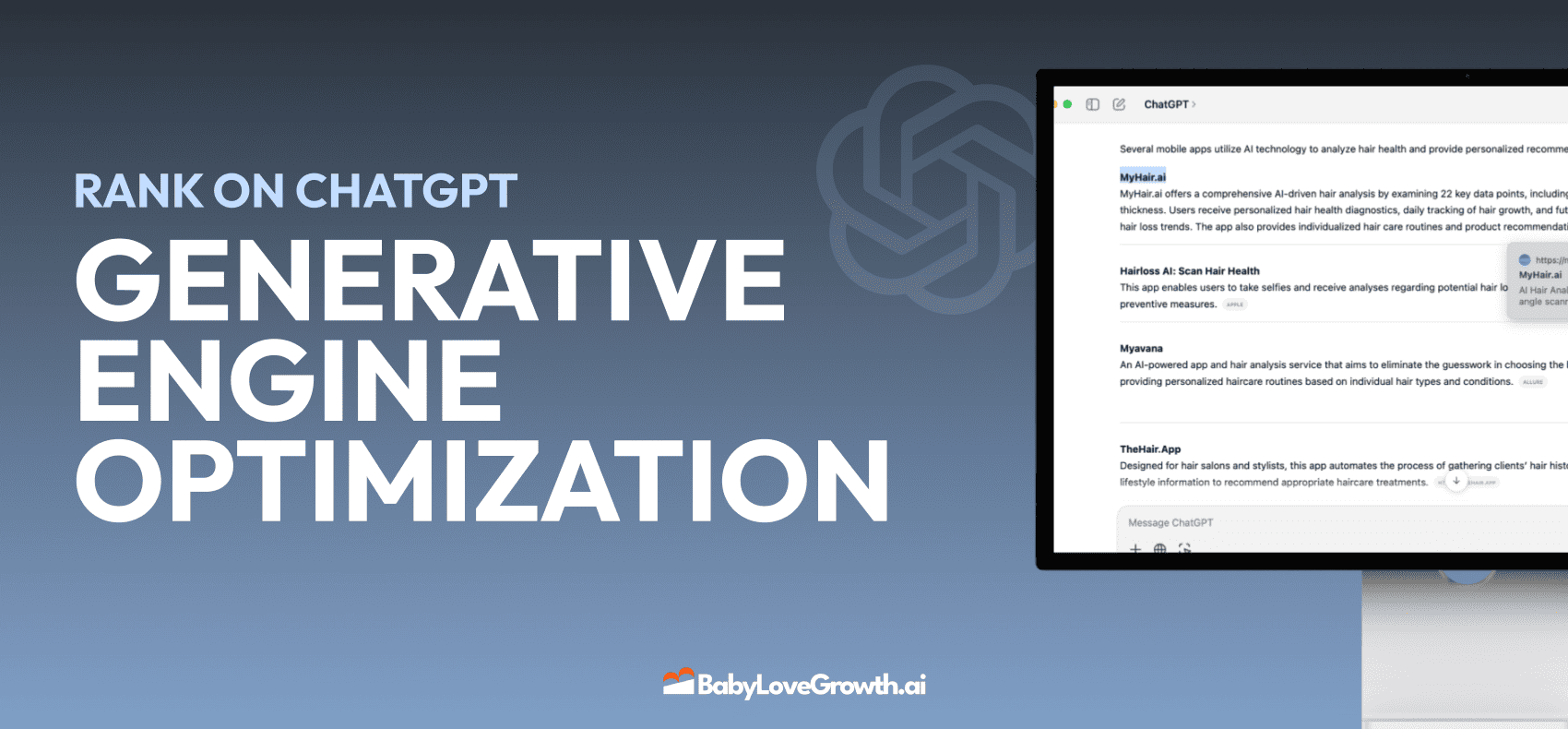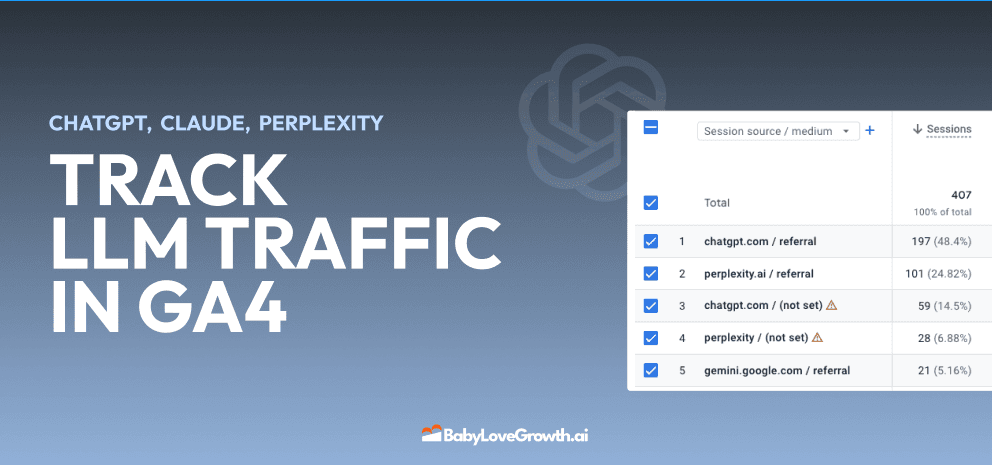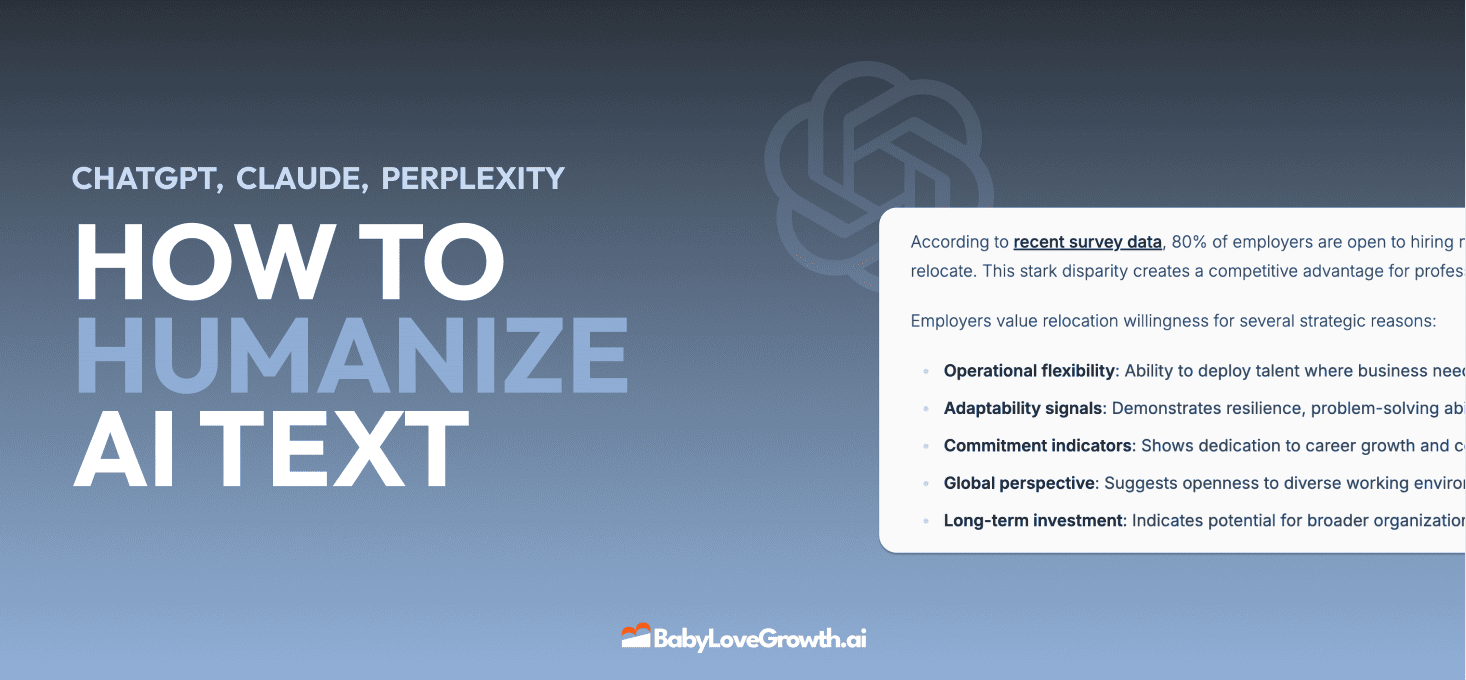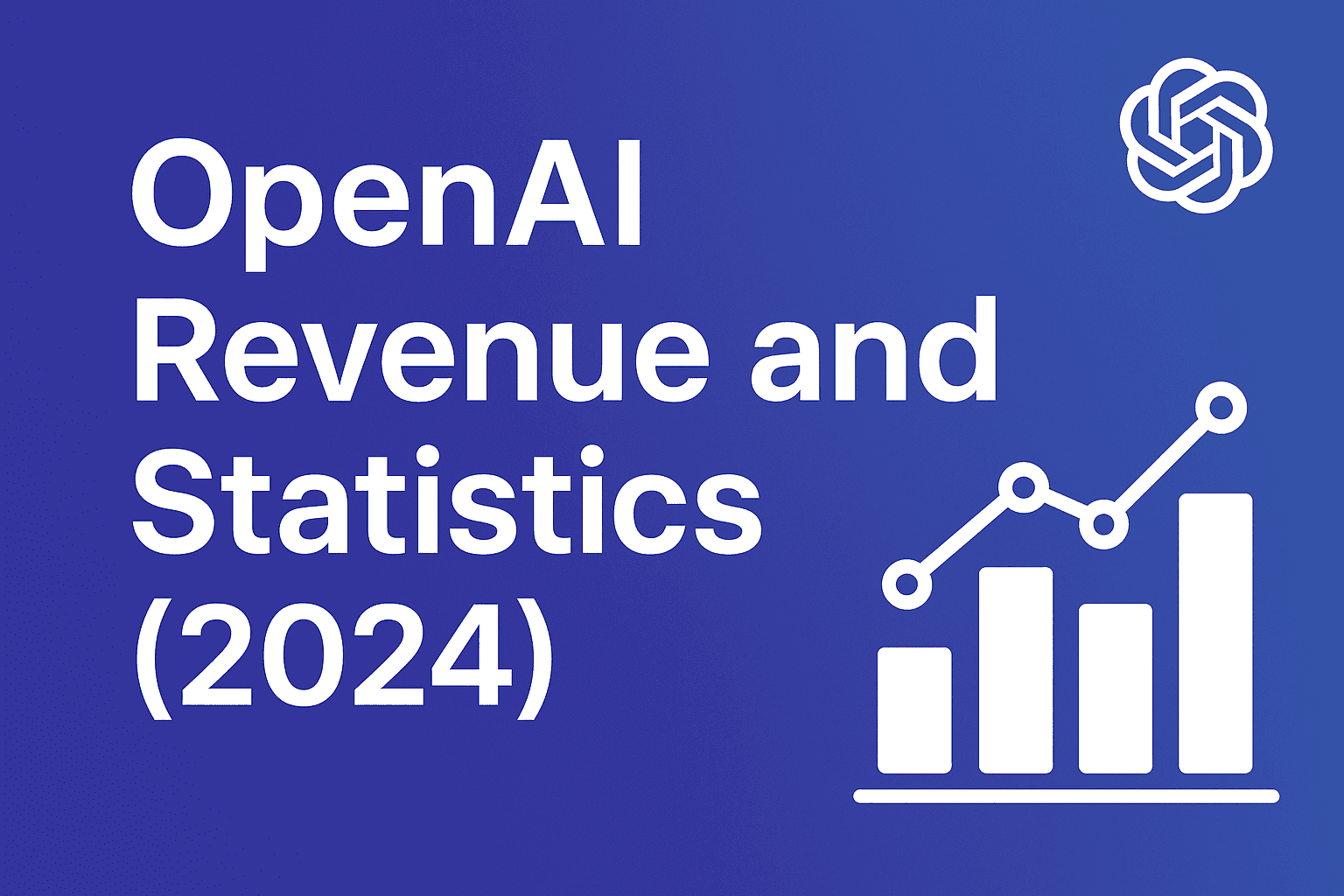AI Content for SEO: Boost Rankings and Traffic in 2025


AI content for SEO is taking over, and the numbers prove it. More than 62% of content marketers are seeing year-over-year traffic increases directly linked to AI-driven content strategies. That sounds like a game of automation and speed, right? Actually, the real power of AI is not just about writing faster or stuffing in keywords. The twist is this. Human expertise working alongside AI is what gives brands the biggest edge in search rankings for 2025. Here’s how that unexpected collaboration is changing everything you thought you knew about SEO.
Table of Contents
- How Ai Content Enhances Seo Performance
- Best Practices For Using Ai Content Tools
- Overcoming Challenges And Ensuring Content Quality
- Future Trends: Ai Content For Seo In 2025
Quick Summary
| Takeaway | Explanation |
|---|---|
| AI Enhances Content Relevance | AI technologies significantly improve alignment of web content with user search intent, making it crucial for effective SEO strategies. |
| Strategic Integration of AI Tools | Successful AI content creation requires a structured workflow that combines AI assistance with human oversight for quality and nuanced content. |
| Prioritize Quality and Originality | The most effective content will be original, featuring unique insights and research, as search engines evolve to prioritize expertise and trustworthiness. |
| Adapt to Evolving Search Dynamics | Marketers must adjust strategies for both traditional search engines and new AI platforms, focusing on delivering high-quality, citation-worthy content. |
| Embrace Hybrid Workflows | The future of content creation involves a collaborative approach where human creativity enhances AI-generated content for better search performance. |

How AI Content Enhances SEO Performance
AI has fundamentally transformed search engine optimization strategies, offering unprecedented capabilities for content creators and digital marketers. The integration of artificial intelligence into SEO practices goes far beyond simple content generation, representing a sophisticated approach to understanding and meeting user search intent.
AI-Powered Content Relevance and Search Intent
Content relevance remains the cornerstone of effective SEO, and AI technologies have revolutionized how marketers approach this critical aspect. According to recent data, 84% of marketers believe AI helps align web content with users' search intent, demonstrating the profound impact of intelligent content strategies.
AI algorithms can now analyze complex search patterns, user behavior, and semantic relationships with remarkable precision. This means content creators can develop materials that not only include relevant keywords but also genuinely address the underlying questions and needs of their target audience. By understanding nuanced search contexts, AI enables more targeted content that resonates deeply with specific user segments.
Optimizing Content Creation and Traffic Generation
The statistical evidence supporting AI's effectiveness in content marketing is compelling. 71.7% of content marketers now use AI for outlining, 68% for content ideation, and 57.4% for drafting content. More impressively, 62.8% of these professionals report year-over-year traffic growth directly linked to AI-driven content creation strategies.
These tools go beyond simple text generation. Advanced AI systems can:
- Analyze competitor content to identify topic gaps and opportunities
- Generate data-driven content outlines that align with search engine ranking factors
- Recommend optimal content structures based on top-performing pages in specific niches

Measuring AI's Impact on Search Performance
Empirical evidence further validates AI's transformative potential. A comprehensive study of 50 websites revealed homepage clicks increased by 29.6% after implementing AI-powered search overviews. This significant improvement highlights how intelligent content strategies can dramatically enhance website visibility and user engagement.
The key to success lies not in replacing human creativity but in augmenting it. AI provides strategic insights, performs rapid data analysis, and suggests optimization strategies that would take humans significantly more time to develop. Content creators who leverage these tools effectively can produce more targeted, engaging, and search-engine-friendly content.
As search algorithms become increasingly sophisticated, the symbiosis between human creativity and artificial intelligence will only grow more critical. Marketers and content professionals who embrace these technologies will be best positioned to achieve superior SEO performance in an increasingly competitive digital landscape.
Best Practices for Using AI Content Tools
AI content tools have emerged as powerful allies for digital marketers, but their effectiveness hinges on strategic and intelligent implementation. Simply generating content is not enough. Successful integration requires a nuanced approach that balances technological capabilities with human expertise.
Understanding AI Content Generation Limitations
Google emphasizes that AI-generated content must demonstrate E-E-A-T (expertise, experience, authoritativeness, trustworthiness). This means AI tools are most effective when viewed as collaborative partners rather than standalone content creators. Content generated by AI requires careful human review and strategic enhancement to meet search engine quality standards.Marketing professionals should approach AI tools with a critical eye. While these technologies can rapidly generate drafts and outlines, they lack the contextual understanding and nuanced perspective that human experts bring. The goal is not to replace human creativity but to augment and streamline the content creation process.
Strategic Workflow Integration
86% of marketers report editing AI-generated content before publishing, highlighting the critical importance of human oversight. Effective AI content tool usage involves a structured workflow:- Content Outlining: Use AI to generate initial content structures and identify potential topic angles
- Research Assistance: Leverage AI tools to collect initial research and data points
- Draft Generation: Create preliminary content drafts that serve as starting points
- Human Refinement: Manually edit, fact-check, and inject unique insights and personal expertise
Maximizing SEO Impact
To maximize SEO impact in 2025, marketers should strategically integrate AI tools into workflows and prioritize original content with unique insights. This means going beyond basic AI-generated text and focusing on creating genuinely valuable, differentiated content.Successful strategies include:
- Adding proprietary data and original research
- Incorporating personal experiences and expert commentary
- Using AI-generated drafts as foundational frameworks
- Ensuring content maintains a consistent brand voice
The most effective content creators will be those who view AI as a sophisticated assistant rather than a complete solution. By maintaining a human-centric approach and using AI tools strategically, marketers can produce high-quality, search-optimized content that genuinely serves user needs and satisfies search engine requirements.
As AI technologies continue evolving, the ability to skillfully blend technological efficiency with human creativity will become increasingly valuable. Professionals who master this balance will stand out in an increasingly competitive digital marketing environment.
Overcoming Challenges and Ensuring Content Quality
The rapid integration of AI in content creation introduces complex challenges that demand strategic approaches to maintain quality and search performance. Digital marketers must navigate a nuanced landscape where technological efficiency meets rigorous content standards.
Addressing AI Content Accuracy and Reliability
Experts recommend combining AI tools with editorial review to maintain accuracy and trustworthiness. AI-generated content can inadvertently produce factual inaccuracies and lack the sophisticated nuance required for complex topics. This means human oversight is not optional but essential.Successful content strategies now require a multi-layered verification process. Content creators must systematically cross-reference AI-generated information, validate statistical claims, and ensure contextual accuracy. This approach transforms AI from a potential liability into a powerful research and drafting assistant.
Navigating Evolving Search Engine Dynamics
Brands must focus on being cited as authoritative sources within AI-generated summaries to sustain visibility and traffic. The introduction of AI Overviews in search results presents a significant challenge, potentially decreasing organic click-through rates. Marketers must adapt by creating content that not only ranks well but also provides unique, citeable insights.Key strategies for maintaining search visibility include:
- Developing deep, original research
- Creating authoritative, expert-level content
- Providing unique perspectives beyond generalized information
- Consistently updating content with current, verifiable data
Optimizing for Multiple Search Platforms
Marketers must adapt by optimizing for both traditional search engines and generative AI platforms, emphasizing originality, expertise, and relevance. This requires a sophisticated understanding of how different AI systems interpret and rank content.The most successful content strategies will blend technological understanding with human creativity. This means going beyond keyword optimization to create genuinely valuable, contextually rich content that serves user intent across multiple platforms.
Content quality in the AI era is not about volume but about precision, expertise, and unique value. Brands that can consistently deliver authoritative, well-researched content will distinguish themselves in an increasingly competitive digital ecosystem.
The future of SEO belongs to those who can skillfully leverage AI tools while maintaining an unwavering commitment to quality, accuracy, and user experience. By treating AI as a collaborative tool rather than a complete solution, marketers can develop content strategies that are both technologically advanced and fundamentally human-centric.
Future Trends: AI Content for SEO in 2025
The digital marketing landscape is undergoing a profound transformation, with AI technologies reshaping how content is created, optimized, and distributed. Understanding the emerging trends becomes crucial for marketers seeking to maintain a competitive edge in an increasingly sophisticated search ecosystem.
Evolving AI Content Creation Strategies
By 2025, 75% of survey respondents anticipate using AI tools like ChatGPT to generate customer responses, signaling a widespread integration of artificial intelligence across content production workflows. This shift represents more than a technological upgrade. It signals a fundamental reimagining of content creation processes.Generative AI tools are now capable of producing search-optimized content that meets increasingly complex algorithmic requirements. However, the most successful strategies will continue to emphasize human expertise and creative oversight. The future belongs to professionals who can effectively collaborate with AI technologies, transforming raw generated content into nuanced, authoritative materials.
Adapting to Advanced Search Ecosystems
In 2025, SEO trends are shifting focus from traditional traffic metrics to conversion quality and maintaining an always-on approach to technical optimization. Marketers must now develop more sophisticated strategies that account for AI-powered search features like AI Overviews and intelligent answer engines.Key adaptation strategies include:
- Creating content with demonstrable expertise
- Diversifying distribution channels
- Developing multi-platform content approaches
- Prioritizing user intent over keyword density
The Hybrid Human-AI Content Workflow
AI-assisted content creation is becoming mainstream, with generative AI tools enabling search-optimized content production that still requires human expertise for finalization. Google continues to prioritize human elements and genuine user value, making hybrid workflows essential.Successful content strategies in 2025 will be characterized by seamless collaboration between human creativity and AI efficiency. This means leveraging AI for initial research, drafting, and optimization while maintaining human judgment for final refinement, fact-checking, and injecting unique perspectives.
The most adaptable marketers will view AI not as a replacement for human creativity but as a powerful augmentation tool. By developing skills in AI tool management, content strategy, and technological integration, professionals can transform potential challenges into significant competitive advantages.
As AI technologies continue evolving, the boundary between human and machine-generated content will become increasingly blurred. Those who can navigate this complex landscape with strategic insight, technical proficiency, and creative vision will define the future of digital marketing and search engine optimization.
Frequently Asked Questions
How does AI content impact SEO rankings?
AI content improves SEO rankings by enhancing content relevance to user search intent, resulting in more targeted and engaging material. By leveraging AI tools, marketers can identify optimal content structures and topics that resonate with their audience.
What are the best practices for using AI in content creation?
Best practices include using AI for content outlining and research assistance, followed by human refinement for quality assurance. This hybrid approach ensures content remains authoritative and accurate while benefiting from AI's efficiency.
What are the limitations of AI-generated content for SEO?
AI-generated content can lack nuance, context, and originality, which are essential for meeting quality standards set by search engines. It requires human oversight to validate accuracy and enhance insights, making collaboration crucial for effective SEO.
What future trends should marketers watch for in AI content and SEO?
Marketers should monitor trends like the adoption of generative AI tools for customer responses and the shift towards prioritizing user intent and conversion quality over traditional traffic metrics. Embracing a hybrid human-AI content workflow will also be vital for success in 2025.
Supercharge Your SEO in 2025 With AI-Driven Results
Are you frustrated by the challenge of scaling up high-quality, search-optimized content while keeping pace with evolving AI-powered search engines? This article highlights the struggle of blending human creativity with artificial intelligence to enhance content relevance, boost organic traffic, and stay ahead of rapid SEO changes. The pressure to deliver unique research, ensure accuracy, and manage complex workflows is real, especially when conventional tools fall short or demand too much time and money.

Take control of your growth with the tools described in this guide. At Babylove Growth, you can instantly put AI-powered SEO strategies into action. With features built to support live research and automated blog writing, plus proven workflows for backlinks and publishing, you can focus on what matters: outsmarting competitors and reaching bigger audiences. Experience the difference and see your rankings rise. Visit Babylove Growth today to unlock your next 30 days of traffic growth and enjoy seamless, step-by-step support for digital marketers, content creators, and SEO pros ready to lead the future of search.
Recommended Articles
Smart SEO,
Faster Growth!
Most Read Articles

Generative Engine Optimization (GEO)
Learn how Generative Engine Optimization (GEO) helps your content rank in AI search engines like ChatGPT and Google AI. This comprehensive guide explains the differences between SEO and GEO, why it matters for your business, and practical steps to implement GEO strategies for better visibility in AI-generated responses.

Track LLM Traffic in Google Analytics 4 (GA4)
Learn how to track and analyze traffic from AI sources like ChatGPT, Claude, Perplexity, and Google Gemini in Google Analytics 4. This step-by-step guide shows you how to set up custom filters to monitor AI-driven traffic and make data-driven decisions for your content strategy.

How to Humanize AI Text with Instructions
Learn practical techniques to make AI-generated content sound more natural and human. This guide covers active voice, direct addressing, concise writing, and other proven strategies to transform robotic text into engaging content.

Open AI Revenue and Statistics (2024)
Comprehensive analysis of OpenAI financial performance, user engagement, and market position in 2023. Discover key statistics including $20B valuation, $1B projected revenue, and 100M+ monthly active users.